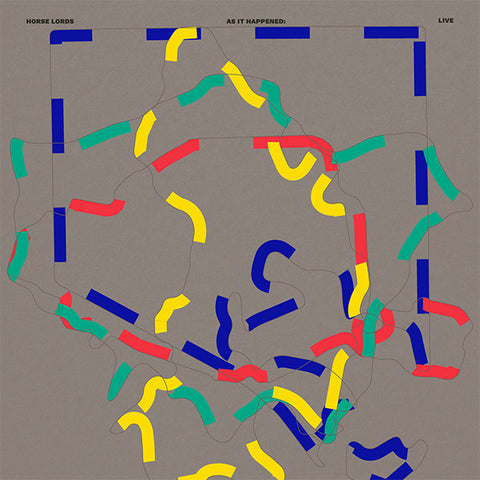Tashi Wada - What Is Not Strange? 2xLP
$28.98
Label: RVNG Intl.
Release Date: June 7th, 2024
What Is Not Strange? is the first full-length album by Los Angeles-based composer Tashi Wada in over five years, comprising his most far-reaching and impassioned music to date. Written and recorded over a period that encompassed the death of his father and the birth of his daughter, the album sees Wada reflecting inward to explore broad narratives— being alive, mortality, finding one’s place in the world—through new modes of ecstatic, song-based expression. While the denser forms, stark contrasts, and overt surreality may carry a different weight than Wada’s earlier work, which elicited perceptual effects with minimal means, the heart of What Is Not Strange? is still in experimentation and unforeseen outcomes.
Wada refers to What Is Not Strange? as dream music, inhabiting “emotional states that are difficult to pinpoint” and “shapeshifting from moment to moment.” The search for innate truths by way of experiential knowledge of the self was influenced by Wada’s immersion in the writings of the American Surrealist poet Philip Lamantia. In addition to titling the album after a poem by Lamantia, Wada was inspired by the visionary poet’s belief that the secrets of the world lie within us, as we are a reflection of
that very same world. And yet a basic premise of the album is the underlying feeling that there is no “there” there. Even the ground under our feet is uncertain. This seeming interiority allows the ethos and music of What Is Not Strange? to defy easy categorization, unfurling like a vision of the past, present, and future.
Raised with a firsthand view of the enduring legacies of Minimalist music and the Fluxus art movement of which his father, Yoshi Wada, was a key figure, Wada moved through the academy and post- aughts American underground as both an insider, due to his father’s storied contributions, and an outsider, as the son of two immigrants and as an Asian-American. On What Is Not Strange?, Wada recontextualizes this lineage, disregarding its presumed tenets and asserting a maximalist approach with larger, more complex arrangements, full of familiar and unusual details that form a mysterious whole.
The instability of known quantities is reflected in the methodology of What Is Not Strange? Wada set up unique parameters to free up his keyboard playing, tuning his Prophet and Oberheim synths to a system based on an early 18th-century temperament proposed by the French composer and music theorist Jean- Philippe Rameau. “From this, I let the music emerge by ear and by feel,” Wada recalls. “The familiar feeling of the keyboard overlaid with the irregular harmony of the tuning and its pull guided my playing and ultimately shaped the sound and harmonic world of the album.”
The personnel on What Is Not Strange? draws from a tight-knit community of Los Angeles musicians at home across a variety of fields of music— experimental, pop, jazz, electronic, among others. Longtime collaborator and partner Julia Holterelevates Wada’s compositions with her signature soaring vocals. Percussionist Corey Fogel contributes powerful yet sensitive orchestral playing across the album, while violist Ezra Buchla and bassist Devin Hoff provide diffuse string textures and melodic interplay. The album was recorded by Chris Cohen in various studios across Southern California, and brought together through the mixing and mastering of Stephan Mathieu. “The music was written fairly intuitively, which has increasingly become the case for me, and stems in part from forming a live group with family and friends and touring a lot in recent years,” Wada says.
New shapes and turns emerge throughout the eleven tracks of What Is Not Strange?: on the opening, title track, rising synth pulses establish an unsettling, yet auspicious mood, coaxing the band into formation. “Grand Trine,” a centerpiece of the album, is the most triumphant music in Wada’s oeuvre to date; Wada’s stately harpsichord and Holter’s unmistakable voice combine for what feels like interplanetary court music. The title references a configuration of three planets forming an equilateral triangle in the astrological chart of Wada and Holter’s daughter. The band lets loose
on “Flame of Perfect Form,” coalescing into a primal psychedelia, while the trio offering of “Subaru” imparts an optimistic blend of folk and Japanese synth-pop, reaching for the stars. On “Plume,” the penultimate track, the elegiac drones present in Wada’s previous music are entwined with joyfully unruly keyboard solos; everything all at once.
With What Is Not Strange?, Wada establishes a foundation for wild experimentation, crafting a definitive statement, and shaping an expansive new sound world with the help of his immediate and extended musical family. The roots deepen and multiply. What Is Not Strange? is the sound of an artist relinquishing control and speaking to the unknowable. As Wada recollects: “I have a childhood memory of walking into the ocean before I was a confident swimmer, and slowly reaching the point where I could no longer touch the ground—just the tip of my toes and then lift off. I was filled with both fear and exhilaration. The bottom gives out and then you’re out in the deep end, in the wide openness, you and the unfathomableness of the sky above and the ocean below.”




